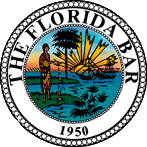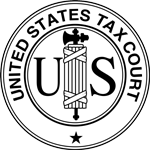- Free Consultation: (772) 418-0949 Tap Here to Call Us
Important Information About IRS Tax Liens

How to Discover If You Have an IRS Tax Lien and What to Do to Remove Them
What is the Difference Between a Tax Lien & a Tax Levy?
Although these two terms are significantly different in application, they are often misapplied by many. An IRS Tax lien is the IRS’s legal claim against your property that helps secure payment of an outstanding tax debt. An IRS Tax Lien does not mean someone will immediately seize the lien assets. A tax levy is an IRS seizure of your property to satisfy the IRS back tax amount owed. The IRS can implement a levy in various ways, from seizing your property for auction to initiating a wage garnishment or levying your bank accounts.
Typically, the IRS will file a lien before they decide to levy. When the IRS files a lien, it doesn’t automatically preclude a levy. Still, if the taxpayer does not take action to rectify the tax debt, then it is probable that the IRS will pursue a levy.
Usually, the IRS will file a lien before they decide to levy.
Discovering That You Have an IRS Tax Lien
The potential for an IRS tax lien occurs if you owe back taxes either from a return you filed or the IRS filed a substitute return on your behalf and you have received a ten-day demand for payment letter from the IRS. If you don’t pay the tax debt or make other arrangements to address it, the IRS will issue you a letter indicating that it will file a lien if you don’t pay the taxes you owe. The IRS must send a letter before issuing a tax lien. Generally, you will receive IRS letter 3172, a notice that the IRS has filed a lien. You should also receive a copy of the Notice of Federal Tax Lien – 668Y.
If you have an overdue tax balance of at least 10K and have yet to receive an IRS notification letter, you can contact the IRS to inquire about it. For the IRS, contact the Centralized Lien Department at 1-800-913-6050. Please have a copy of your last year’s tax return for verification purposes.
You can also search your state’s Secretary of State website for lien filings.
In addition, since Liens are filed in the applicable county of your latest address on record, you can also inquire with the Clerk of Court there. Typically, counties have a website search portal where you can look up by using your name.
What is a Tax Lien or Notice of Federal Tax Lien?
When you owe back taxes, the IRS can issue a legal claim to your assets, a tax lien. You usually must owe at least $10,000 in back taxes. The IRS will notify you of this lien by filing a notice of a federal tax lien. Remember that by the time you have received this notice, the IRS has already filed a lien. This is done to prevent the sale of assets before IRS can make its claim. IRS tax liens attach to all your current assets and any assets acquired in the future while the lien is in effect. A tax lien ensures that the IRS is empowered to take the money, or its portion, to pay the total tax debt.
A federal tax lien works the same way a home mortgage works, where the home mortgage loan lending bank has a lien on your home, which gives them the right to repossess your home if you don’t pay the loan. In addition, any loan balance owed to the mortgaging bank will have to be paid upon at the time of the home’s sale before others receive any money. When the IRS files a tax lien, they have the same right of sale proceeds to be applied to paying the tax balance.
What Assets Are Affected by IRS Tax Liens?
An IRS tax lien attaches to every current asset you own and any existing assets you have rights to. Tax Liens also attach to any future purchases and rights obtained while the lien is in effect. The IRS intentionally lists vague language within the Notice of Federal Tax to not limit the lien’s range over your assets and rights to assets. The list below is not inclusive; however, it provides an excellent example of the content of assets covered.
Properties (residences, vacation homes, rental homes – if business account: any business real estate). This also includes any future properties purchased while the lien is still active.
Any vehicle: cars, SUVs, trucks, vans, recreational vehicles & motorcycles
Investment income: stocks, bonds, investment funds, and other securities; real estate; retirement investment accounts; annuities; the investment portion of life insurance contracts; interests in trusts and estates; collectible items; commercial crops
Financial Instruments – any type: 401K, Crypto, Stocks, Bonds, Mutual Funds & Hedge Funds
Valuable Personal Effects – Jewelry, a collection of rare antiquities, coins, stamps, guns, and other
Accounts receivables – balances owed to you or your business
Will an IRS Tax Lien Prevent Me from Selling My Property?
A lien does not outright stop you from selling your property, but it means that the IRS is entitled to available proceeds to pay the tax debt. A tax lien is treated similarly to a mortgage upon the property’s sale. The mortgage is paid off before the seller obtains any remaining funds. The same applies to tax liens. Depending upon the how much the home is sold for relative to how much the tax liens are for will determine if there are any remaining proceeds. Suppose there is a present mortgage on the home that usually gets paid off first before any remaining balance is applied to paying down the tax debt. The debt balance may remain payable if the proceeds do not cover the tax debt owed.
Will an IRS Tax Lien Show Up on Public Records?
IRS tax liens are not private information protected from public view. The IRS initiates a tax lien by filing the lien with the local county clerk’s office, usually where the property is located, or with the Secretary of State. These filings are public records easily retrievable with a simple search.
A potential buyer of your property will do a title search, reflecting a lien on the property. Your potential creditors may see the tax lien if you apply for a loan. Employers could potentially perform a lien search under your name. This may be applicable if your job requires you to maintain a certain level of personal fiscal well-being.
How Long Do IRS Tax Liens Last?
Under the Collection Statute Expiration Date (CSED), the IRS typically only has ten years to collect a tax debt. The CSED starts when the IRS assesses the tax. Generally, the tax lien survives until the collection statute expires. Once the unpaid tax balance reaches a delinquency status, the IRS will mail you a Notice of Federal Tax Lien indicating tax lien is in effect. Since the IRS Tax delinquency status usually occurs relatively close to when the CSED starts, the lien period will coincide with the length of the CSED, typically ten years.
How to Remove an IRS Tax Lien
There are several ways to remove an IRS Tax Lien. You can pay the entire tax balance owed. IRS usually reflects this on public records within 30 days of receipt. Another way is if you could show that the lien is causing financial hardship, the IRS may release it. Finally, if you can establish that the IRS made a mistake by issuing the tax lien, you may have it removed. It’s recommended to seek advice from a tax attorney to determine the best lien removal strategy. Please refer to Attorney-CPA Will Harmon at Harmon Tax Resolution, LLC for more information.
How an IRS Tax Lien Could Affect You
Your creditors get notified when the IRS issues a tax lien. The lien will not impact the current debt for secured creditors since they have already established their claim rights to your assets under their security agreement with you. If there were to be an involuntary or voluntary asset sale, the secured creditors are entitled to their interest in the proceeds paid before the IRS is entitled to its lien amount. Any subsequent creditors will have their encumbrance claim subservient to the IRS’s claim. Having an IRS lien significantly hampers the ability to borrow. In addition, the IRS tax lien does take priority over unsecured liabilities, such as credit cards.
An IRS tax lien is considered unfavorably by your creditors. Even though the IRS no longer reports tax liens to the Credit Reporting Agencies, it is public information. A tax lien can have a similar effect as if your credit score has been negatively impacted because creditors may see you as a greater risk for default. This perceived risk may result in increased interest rates or a reduction in credit limits on credit cards or other borrowing mechanisms.
How to Appeal an IRS Tax Lien
You can appeal an IRS tax lien if you disagree with it. There are several appeal options available. The situation surrounding the IRS tax lien will determine which option to choose. If an IRS lien has been enacted, you should talk with a tax professional as soon as possible.
The IRS must have a separate Notice of Federal Tax Lien for each tax and period owed. The IRS is required to inform you each time they do. You have the right to request an appeal hearing within 30 days of the date listed on the notice. There are two main methods to appeal.
Collection Due Process: With this appeal, if you don’t like the outcome, you can appeal the decision to the United States Tax Court.
Collection Appeals Program (CAP): You can request a CAP hearing before or after a Notice of Federal Tax Lien is filed. However, the decision is binding to you and the IRS, and you cannot appeal to the Tax Court.
Tax Resolution Process
If you’re facing a tax lien, it’s essential to make sure you know all your options! Harmon Tax Resolution, LLC offers a free initial consultation to discuss your options. You will speak with multi-licensed Tax Attorney-CPA-IRS EA Will Harmon. He will address your situation from all available angles and provide you with critical information, allowing you the peace of mind and security of understanding your options. Call today so you can sleep well tonight.











